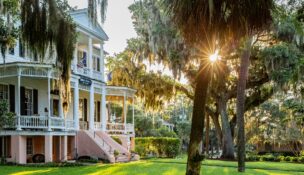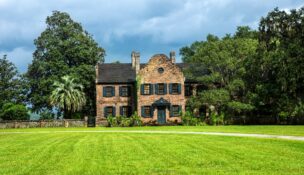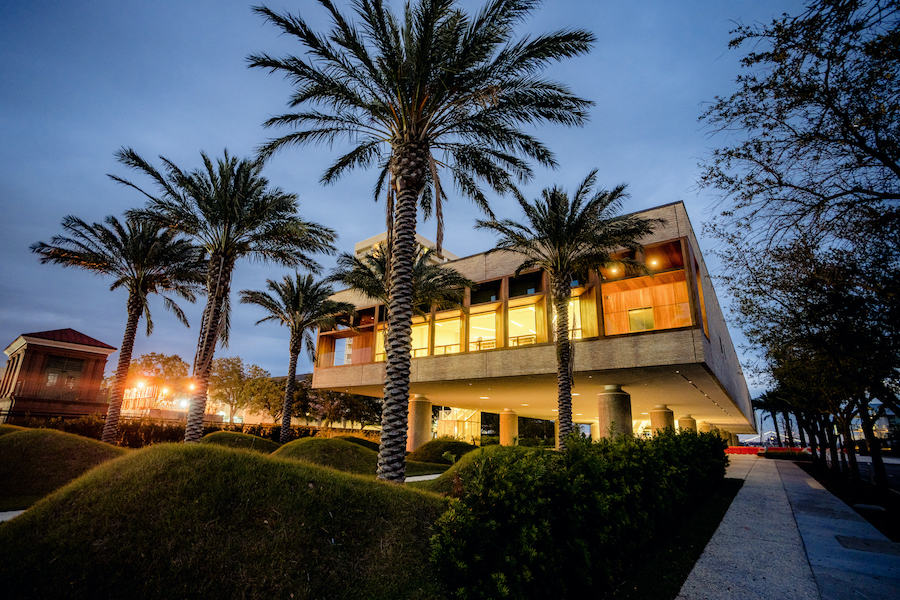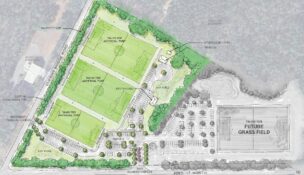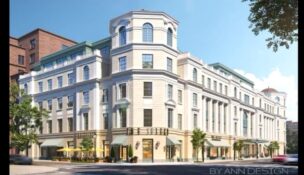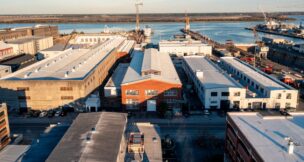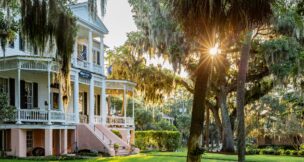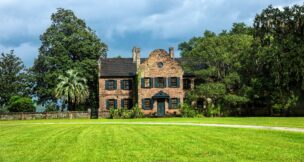Meet the CEO of the International African American Museum in Charleston
Christina Lee Knauss //June 22, 2023//
Meet the CEO of the International African American Museum in Charleston
Christina Lee Knauss //June 22, 2023//
Since April of 2021, Tonya Matthews has gone through the joys and challenges of building a new museum, one that is unique not only in South Carolina but in the nation because it seeks to tell the story of African-American history from its roots in Africa to its impact in today’s world.
Matthews, CEO of the International African American Museum, arrived in Charleston in April 2021 bringing with her years of experience in the nonprofit sector, the sciences, museums and education.
Born in Washington, D.C., Matthews holds a degree in biomedical and electrical engineering and a certificate in African American studies from Duke University as well as a doctorate in biomedical engineering from Johns Hopkins University.
Matthews developed education programs for the Maryland Science Center and worked in the division of restorative and neurological devices for the U.S. Food and Drug Administration. She then became vice president of the Cincinnati Museum Center at Union Terminal, where she directed research and education.
Related content: Exhibits define 'one of the most important museums in the world' in Charleston
Related content: International African American Museum announces special exhibit for opening
Related content: International African American Museum announces plans for community dedication ceremony
Related content: Events to mark opening of International African American Museum in Charleston
She served as president and CEO of the Michigan Science Center and the as associate provost for inclusive workforce development and as director of the STEM Innovation Learning Center at Wayne State University in Detroit.
While at the Michigan Science Center, she founded The STEMinista Project, a movement to engage girls in their future with STEM careers and tools. She continues this work today through STEMinista Rising, supporting professional women in STEM – and the colleagues who champion them – with an inclusive emphasis on women of color.
She is also a published poet, featured in “100 Best African American Poems” in 2010.
Matthews recently took time out during the busy weeks leading up to the IAAM’s grand opening to talk with SC Biz News about her time in Charleston and her hopes for the new museum.
What has the experience been like as CEO of a new museum, especially one with this much history involved?
This appointment felt like a collision of the professional and the personal. The opportunity to build a museum from the ground up, help take it over the edge, and take it from the foundations an amazing opportunity, particularly for a museum of this scale, covering African American history and with its location and its place. For me personally it’s all resonating very deeply. I feel this is where I belong, this is what I’ve been trained for and led to do, so I’m very excited.

How has your previous experience in the museum field helped you with your work in Charleston?
Very seriously, all of it has. In Detroit, my experience was bringing the museum back online, reconnecting an institution to community. In Cincinnati, my role was about transformation, creating a new type of museum out of traditional bone and also helping to steward the incorporation of the National Underground Railroad Freedom Center into that space. Even at Wayne State, my student programs were all about the art of making people comfortable with topics that people assume they are going to be uncomfortable about. In my previous world before museums, it was all about algebra and calculus, and now at museums it’s about telling untold stories about places and times that in some ways are so familiar to us.
What lesson or message do you want visitors to take away after visiting the museum?
I would like for our visitors to leave a little bit more curious because I think curiosity is a key. We tell a lot of stories, but we cannot tell them all. I think the museum will have been successful if we have visitors wanting to learn more, whether that’s going into our bookstore and looking for a book or asking volunteers and docents about how they can find more information and learn more. Regardless of the background you bring to the International African American Museum, if you leave a little bit more curious than when you came, that’s what success looks like. I’d also like our visitors to experience a wide range of emotions, because one of the things we’ve tried to do is put these stories in their full context.
What impact do you hope the museum will have for the African American community in Charleston, the rest of South Carolina and beyond?
If we do our job right, the impact to the broader African-American community is about recognition and appreciation. so much of the story has been hidden or untold or told in a false way. Everything from the trauma of enslavement to the joy and recognition of innovation and invention has been a part of our story here, and the museum offers recognition of our incredible contributions, of how we are a piece of the fabric of this nation and not an add-on. We’re offering a beautifully designed space where the stories we tell can be truthfully and artistically told. It’s an incredible thing to have these stories story told in a space so carefully cared for like this one.
What kind of an impact do you see the museum having on Charleston’s tourism industry, and its economy?
We’ve received an enormous amount of support from people on the tourism side of things here like Explore Charleston, and also our cultural heritage partners who have all been incredibly welcoming and excited about the museum. I think the impact we can have been as a history museum. Charleston already has developed a brand because of its history, and we are offering a chance to delve deeper. Our community is already phenomenal at offering historical experiences and storytelling, and we’re expanding the variety of both. We also open the door for additional tourists to come to Charleston, especially folks who are seeking different kinds of stories. We also have the power of place because of our location at Gadsden’s Wharf, so for some people there is the pilgrimage element to coming here. We’re telling a lot of stories that align with a lot of different elements of Charleston’s history.
How has the business community supported the museum?
We’ve seen a really diverse base of business support for the museum. There are some folks that you would expect – veterans in the arts and culture world and philanthropy. We have a lot of support from banks like Bank of America and South State Bank, and other institutions known for showing up in these spaces. We’ve also had significant support from Michelin and Mercedes. I think it’s been very exciting to see all of the business community come together to understand and realize the value things like the museum bring to larger economic development in the region.
The IAAM also offers a unique element with the Center for Family History. Can you talk a little about why this space is unique?
Our genealogy center is as large as our largest gallery. We devoted that much space to it because of our role as an African American history museum. There are serious challenges in exploring African American histories, family histories, because of the interruptions of our space. We are uniquely positioned with our archives in the Lowcountry because this is where the largest concentration of people with African ancestry came through into the United States. Our records are particularly significant for that reason.
I think we’ll be able to help people explore their genealogy because our records can help overcome periods of poor or dismissive record-keeping that affected African Americans. Charleston is also a perfect place for the Center because one of the things I’ve really enjoyed about South Carolina is this is a community that loves to tell stories. People tell stories about their grandfathers and great-grandfathers, and there are many multi-generational businesses here. This idea of ancestry is part of the cultural DNA of South Carolina.






